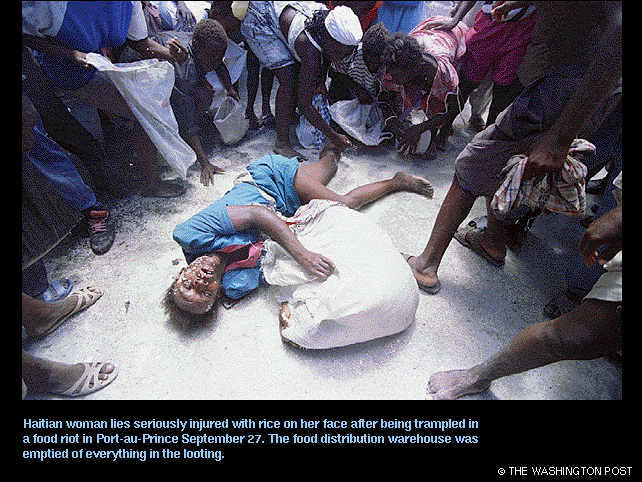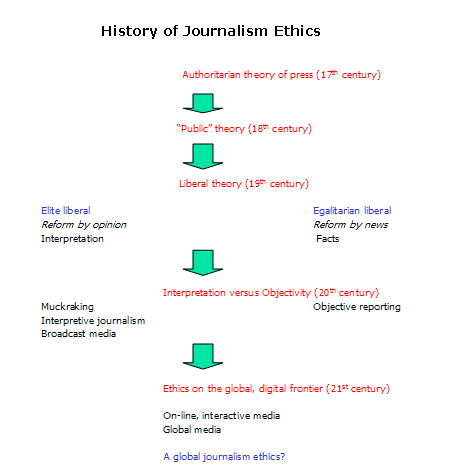Ethics are a factor that develop overtime. Ethics change with new technologies, advancements, ideas — and are often subjective to one’s personal opinions.
ethics [eth-icks] noun, plural : a system of moral principles
Ethics are separate from formal laws. Therefore, to answer the question “what is ethical” is often simply impossible because of the multitude of interpretations.
Journalism, in particular, has seen a long ongoing debate regarding ethical practices — especially as journalism becomes more mainstream, and access to questionable sources increases.
According to the Society of Professional Journalist’s Code of Ethics, “Ethical journalism strives to ensure the free exchange of information that is accurate, fair and thorough. An ethical journalist acts with integrity.”
But to each individual journalist, this could mean something different.
As the chart below shows, the goal of journalism has changed over time. Thus have ethics as well.
Early journalism was characterized by authoritarian motives — supporting the current government and spreading only government-approved messages. At this time it was not “ethical” to embarrass the government. Slowly journalism has progressed toward a more liberal model. In this theory, almost anything is “ethical” because it argues for a free marketplace of ideas. Lastly, the theory of social responsibility promotes diverse and balanced news that balances freedom of the press with cohesive investigation. Thus, it is “ethical” to investigate all sides of a story and report in the fairest manner.
Today one could argue we sit somewhere between the liberal and social responsibility theories.
With people like Edward Snowden leaking classified information for the greater good, we lean more toward the liberal model.
However, criticism on the bias of the press shifts to the social responsibility theory.
Ultimately, ethics lie at the hands of the journalist writing the story. Am I willing to exploit a source to get evidence? Am I willing to leak classified, dangerous information to increase transparency? How far will I prod into a story before I am doing more harm than good?
A few months ago I was able to hear Carol Guzy, Washington Post photographer, speak about her experiences photographing disastrous situations; including 9/11, Hurricane Katrina, the earthquake in Haiti and famine in Africa. Guzy brought up even more questions of ethics:
The internal battle she was constantly fighting centered around her personal beliefs ethical issues. By capturing such powerful photos, she was informing the world of these tragedies. However, what is too much? When is one photo too gruesome? Where do I reach the point of privacy invasion? And when do I put down the camera and actually physically help?

One of Guzy’s Prize Winning Photographs http://www.pulitzer.org/imported-data/year/1995/spot-news-photography/works/images/big/guzy1.gif
Unfortunately the progression of news overtime has only complicated the issue of ethics. Journalists will always have certain guidelines to follow, but journalism ethics will be debated until the end of time.


Leave a response